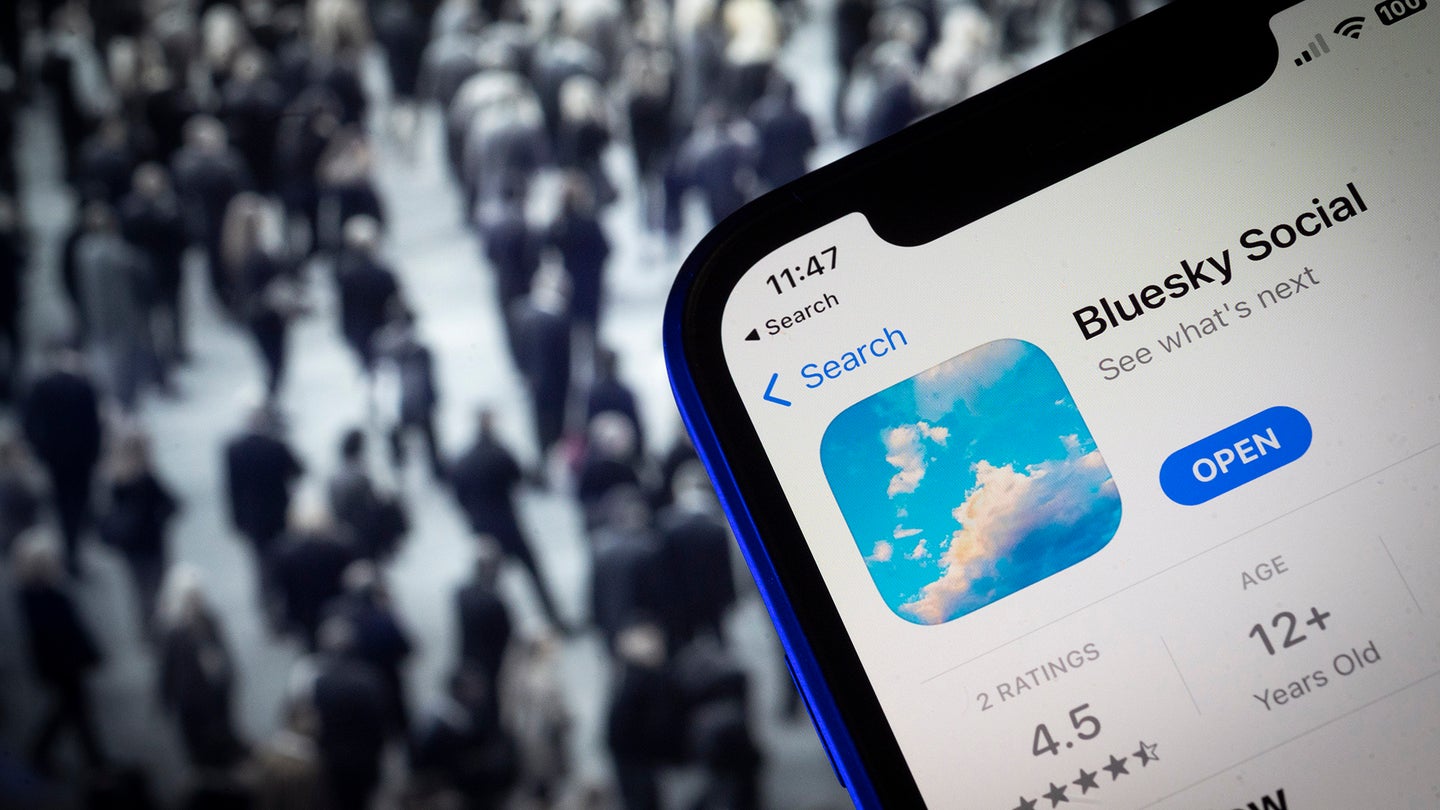
Bluesky is finally open to anyone still desperate to fill the social media void left by Twitter’s collapse into the black hole that is X. Although Twitter founder and former CEO Jack Dorsey first announced the “decentralized” platform back in 2019 (more on that later), the project truly launched in 2021. After debuting on iOS in February 2023, it remained an invite-only, waitlisted site for months. As of February 6, however, anyone can now create a free account on the site.
[Related: Twitter alternative Bluesky is fun, friendly, and kind of empty.]
Using Bluesky looks and feels much like Twitter before Elon Musk pulled off his tumultuous, $44 billion company takeover in 2022. The focus remains primarily on microblogging through 300-character limited text and image posts, all displayed in chronological timelines against a very similar color palette. There were an estimated 3 million accounts on Bluesky prior to today’s public launch, which currently makes for a far quieter social media experience when compared to the numbers seen on established platforms like X (397 million users), Facebook (2.9 billion), TikTok (1 billion), and even Threads (130 million), Meta’s recent attempt at a Twitter replacement. That, of course, may change in the coming weeks.
The biggest differences between Bluesky and its competitors reside within the website’s inner workings. Its underlying technology is available as an open, decentralized protocol, meaning any motivated developers can access the code to create their own algorithmic tweaks and, eventually, even spin-off social networks. Social media alternatives like Mastodon also operate using an open, decentralized, protocol, although the nitty-gritty is still confusing years after its debut. (TechCrunch has a solid rundown of protocol jargon and its uses.)
Although Dorsey originally intended to transition Twitter over to this open protocol format, he later altered plans to make Bluesky a wholly separate project. After Musk’s 2022 takeover, many users decided to abandon his newly christened X due to its rapid devolution into an even more unreliable and toxic ecosystem. As the social media landscape continued to shift, Bluesky’s closed-door era offered marginalized communities a relatively reliable, supportive online safe haven.
Bluesky’s developers gradually opened the site to more users throughout the last year, but not without issues. Many users continue to voice concerns regarding an uptick in the kinds of harassment that forced them from X in the first place. With only a couple dozen employees, it remains to be seen if Bluesky can handle a deluge of additional users. In its public launch announcement, the company’s developer team says it plans to focus on improved safety, fact-checking, and content moderation policies in the coming weeks.
The post Twitter alternative Bluesky is now open to the public appeared first on Popular Science.
Articles may contain affiliate links which enable us to share in the revenue of any purchases made.
from Popular Science https://ift.tt/8iwGHFx



0 Comments